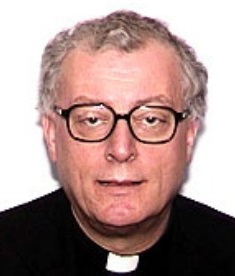| To work for the proper implementation of canon law is to play an extraordinarily constructive role in continuing the redemptive mission of Christ. Pope John Paul II |
|
30 dec 2024 |
Research links | Canonical & Roman Legal History, here.
Corpus Iuris Canonici, here.
Gratian, here.
Ius Decretalium, here. |
| Overview
|
Master Page on Ius Antiquum
The Ius Antiquum ('Ancient Law') denotes that period of the Church's legal history beginning with the time of Christ and running up to the publication of Gratian's great Concordia, that is, something just over 1,000 years.
|
| Sources |
The fons essendi of the Ius Antiquum is that of canon law in general, namely, popes and bishops, councils and synods, religious superiors, and so on. Today the primary fons cognoscendi for the Ius Antiquum is Gratian's Concordia — a work intended to bring together the legislation of the first millennium of Church history — but Gratian himself had relied partly on earlier collections of ecclesiastical legislation in assembling his own. These earlier collections remain important sources for Ius Antiquum studies and all general histories of canon law discuss them. That said, two important monographic studies specific to the Ius Antiquum are:
Ferme, Introduction 276-277. By adapting some principles of Biblical hermeneutics and rhetoric to the study of the canons [Ius Antiquum lawyers] distinguished precepts from counsels and principles of perpetual validity from those bound to conditions of place, time and person. But to translate these valid efforts into something that would become genuine canonical science would demand a person of genius. That genius would be Gratian.
• Bertrandus Kurtscheid (German Franciscan, 1877-1941), Historia Iuris Canonici, Historia Institutorum abs Ecclesiae fundatione usque ad Gratianum, ad usum scholarum [1941], (Catholic Book Agency, 2° ed., 1951) xvi-357 pp. ▪ Review: =. Notes: Wiki auf deutsch Bertrand Kurtscheid.
• Ivo Zeiger (German Jesuit, 1898-1952), Historia Iuris Canonici, Volumen Primum: De Historia Fontium et Scientiae Iuris Canonici, (Gregoriana, 1939) 129 pp. ▪ Review: =. Notes: Zeiger's second volume deals with canonical institutions. See also Wiki auf deutsch Ivo Zeiger.
|
| Approaching the Ius Antiquum |
The Ius Antiquum ran for more than a millennium and was no featureless monotony of staid jurisprudence; rather the characteristics of the Ius Antiquum varied markedly from century to century, from place to place, and from cause to cause, united primarily by what it lacked, namely, a commonly acknowledged resource for canonical consultation such as did not to arise until Gratian's Concordia. With numerous caveats and qualifications, however, most scholars agree that the high-water mark of the Ius Antiquum was represented by three works of Ivo of Chartres, the Tripartita, the Decretum, and the Panormia, all dated to the late 11th century. See also wiki Ivo of Chartres.
|
| User notes |
There might be editions of works that pre-date or post-date those cited herein. Reviews and Notes are grey-highlighted, on-line biographical information is underlined blue-linked, and matters in green highlights are of special interest. Yellow highlights are cautions for users, while the markers "=", "≠", and "≈" are placeholders for use by webmaster. |
| Abbreviations on this page might include: |
AAS CE CLD Comm. | Acta Apostolicae Sedis (1909 et seq.) Catholic Encyclopedia (1907-1914) Canon Law Digest (beginning 1933) Commentary (≠ Communicationes!) | DDC DMC NCE NCE2 | Dictionnaire de Droit Canonique (1935-1965) Dictionarium Morale et Canonicum (1962-1968) New Catholic Encyclopedia (1967) New Catholic Encyclopedia, 2° ed. (2003) |
| Materials on this website represent the opinions of Dr. Edward Peters and are offered in accord with Canon 212 § 3. This website undergoes continual refinement and development. No warranty of completeness or correctness is made. Dr. Peters' views are not necessarily shared by others in the field nor are they intended as canonical or civil advice.
CanonLaw.info Homepage & Site Directory / Help support CanonLaw.info / Original Materials © Edward N. Peters |
Staging
|
|
|





